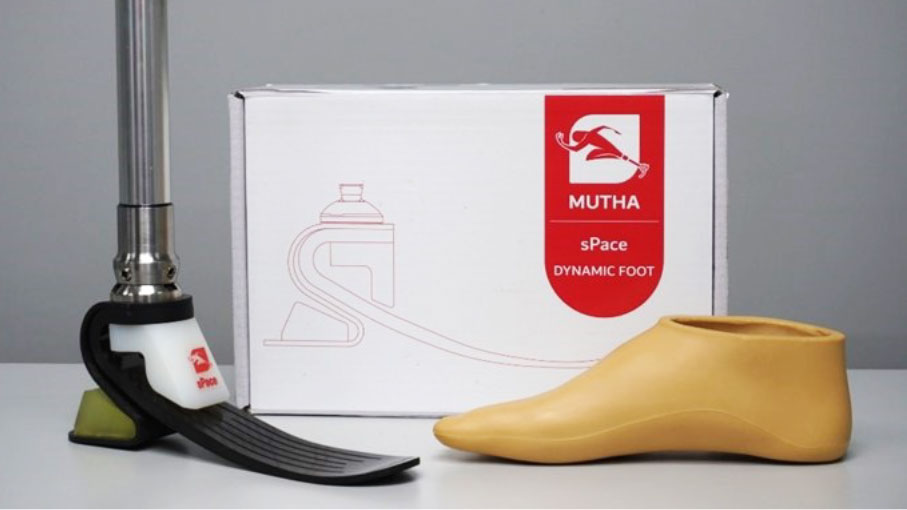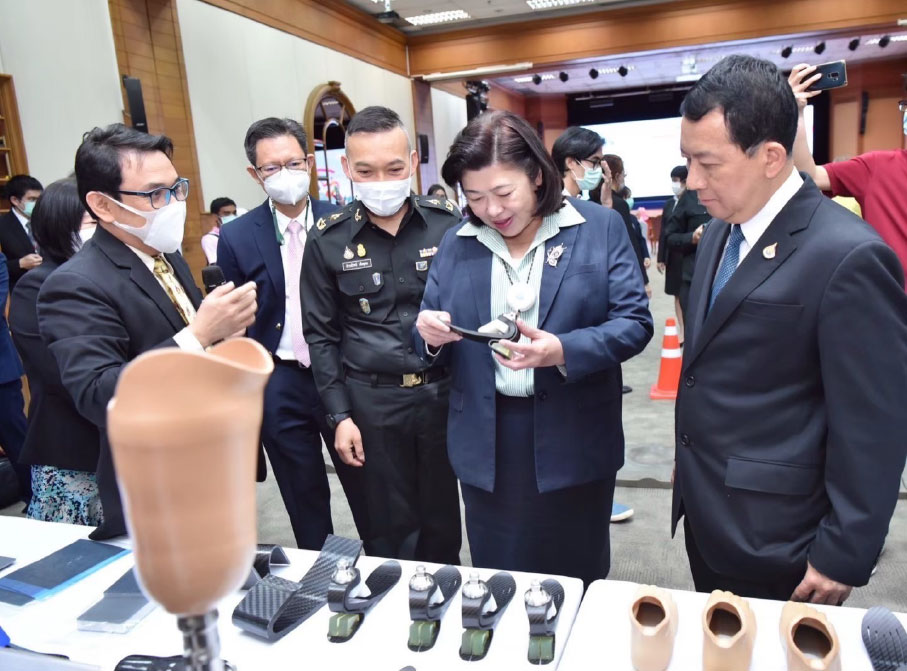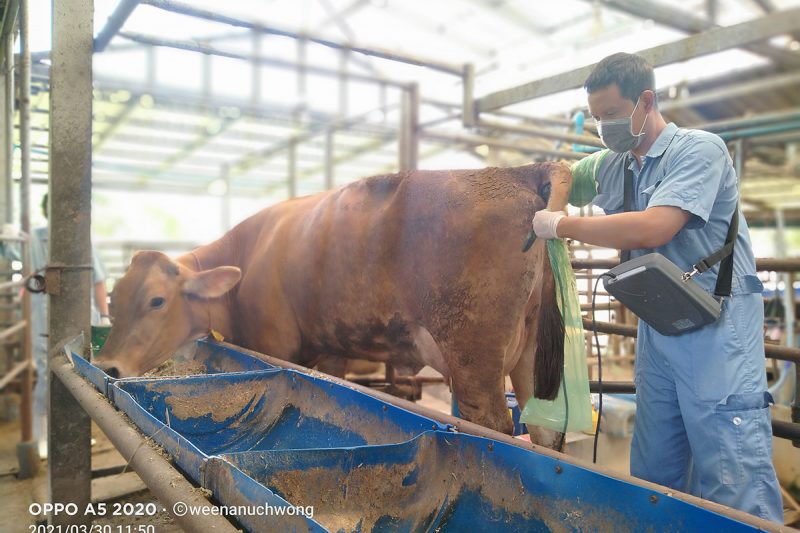Improving the Quality of Life for Lower Limb Amputee in Thailand with the sPace Dynamic Prosthetic Foot
“The project aimed at enhancing the quality of life for individuals with lower limb amputations throughout Thailand through the sPace dynamic prosthetic foot innovation is organized by the Faculty of Engineering at Chulalongkorn University in collaboration with the Sirindhorn School of Prosthetics and Orthotics at the Faculty of Medicine, Siriraj Hospital. This initiative has received support from the Ministry of Higher Education, Science, Research, and Innovation through the National Research Council of Thailand.
The project involves producing and providing the sPace dynamic prosthetic foot innovation to 300 individuals with lower limb amputations, distributed through 22 state hospitals across the country. Simultaneously, feedback has been collected from the recipients, and an economic and public health assessment (cost-effectiveness) has been conducted. This data is crucial for future applications to include sPace prosthetic feet in the basic entitlements provided by the state or the National Health Security Office.”

According to the 2017 statistics from the National Statistical Office, Thailand had around 40,836 individuals with lower limb amputees, and 95 percent of them were using low-quality prosthetic feet provided by the government or “Sach Foot.” The primary obstacle to accessing high-quality prosthetic feet was their high cost, ranging from approximately 60,000 to 150,000 Baht. Therefore, making these high-quality prosthetic feet affordable would significantly enhance the lives of disabled individuals, enabling them to return to work and support themselves, ultimately benefiting families, society, and the nation’s future.
To address this issue, the research team has developed a high-quality dynamic prosthetic foot made from lightweight, robust carbon fiber material that mimics the flexibility of a real foot. This innovation can generate force during walking, allowing users to engage in various activities, from outdoor pursuits to jogging. It has undergone rigorous testing according to international standards ISO10328, obtained ISO13485 certification for quality management in medical device production, received intellectual property rights registration under number 20057 from the Department of Intellectual Property, and successfully completed clinical trials at the Sirindhorn School of Prosthetics and Orthotics, Faculty of Medicine, Siriraj Hospital.
Furthermore, the research team has established a spin-off company called MUTHA Co., Ltd. to manufacture and distribute these high-quality dynamic prosthetic foot in Thailand at a cost that is 2-5 times lower than imported prosthetic feet, with a price of 30,000 Baht.
To implement this innovation in society, the project is a collaborative effort between the Faculty of Engineering at Chulalongkorn University and the Sirindhorn School of Prosthetics and Orthotics at the Faculty of Medicine, Siriraj Hospital, Mahidol University. It has received financial support from the Ministry of Higher Education, Science, Research, and Innovation (MHESI) through the National Research Council of Thailand (NRCT). The project’s goal is to enhance the quality of life for individuals with lower limb amputations across Thailand by providing them with the sPace dynamic prosthetic foot innovation. As a New Year’s gift for 2023, the research team has produced and distributed these innovative prosthetic feet to 300 disabled individuals with lower limb amputations in the Bangkok Metropolitan Region and various provinces through 22 state hospitals nationwide.
Moreover, the project collects feedback from recipients of sPace prosthetic feet to evaluate their economic and public health value (cost-effectiveness). This information is vital for future applications to include sPace prosthetic feet in the basic entitlements provided by the state or the National Health Security Office (NHSO). Aside from improving access to high-quality prosthetic feet for individuals with disabilities, this initiative also leads to significant cost savings for the country, reducing expenses from 6 billion to only 1.2 billion Baht.

BY
Center of Excellence for Prosthetic and Orthopedic Implant, Faculty of Engineering, Chulalongkorn University
Related articles:
Others





